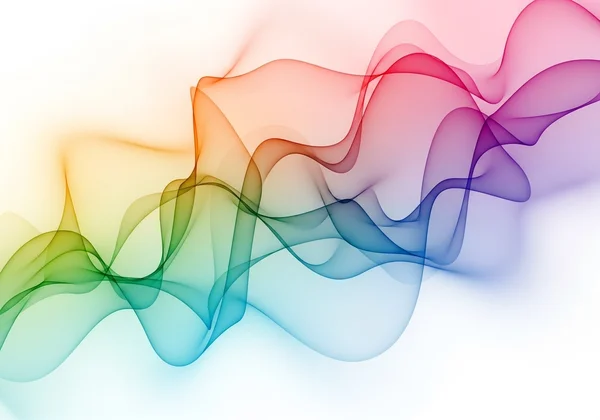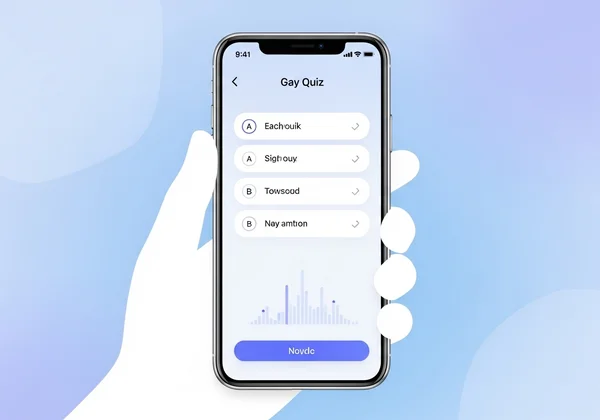Am I Gay? Signs, Feelings & Our Free Gay Quiz to Explore Your Sexuality
Feeling a little confused or intensely curious about your feelings towards the same sex? You're certainly not alone. Many people, especially during their formative years, question their sexuality at some point, and it's a completely normal and healthy part of self-discovery. Feeling a pull towards the same sex? This guide offers a safe, non-judgmental space to explore common indicators and feelings of same-sex attraction, helping you understand yourself better on your own terms. There's no single checklist that definitively answers the question, "Am I gay?" Identity is personal and multifaceted. Instead, we'll explore various aspects of attraction and experience, offering a framework for your own reflections. If you're looking for an interactive way to explore these feelings further, consider taking a confidential gay quiz on our site to gain additional insights.
Understanding if You're Gay: Common Signs to Explore
Understanding your sexual orientation often involves tuning into different kinds of attractions. It's not just about who you're physically drawn to, but also who you connect with emotionally and romantically. Exploring these facets can provide significant clues about your sexual identity.

Recognizing Emotional & Romantic Attractions
When you're trying to figure out if you have gay feelings, it's helpful to consider who you form deep, non-sexual bonds with. Do you find yourself drawn to individuals of the same sex in ways that go beyond friendship? You might find this shows up as a strong desire for emotional intimacy, wanting to share your deepest thoughts, dreams, and vulnerabilities with someone of the same gender.
Think about who you idealize in romantic contexts. Do your daydreams or aspirations for a future partnership typically involve someone of the same sex? This is often a significant indicator of romantic attraction. It's about who you envision sharing your life with, building a home with, or experiencing profound love with, rather than just physical desire. These emotional connections can often be the first subtle am I gay signs many people notice.
Identifying Sexual Attraction & Fantasies
Beyond emotional connection, sexual attraction plays a key role. Have you ever experienced physical arousal or sexual fantasies involving individuals of the same sex? These experiences can be a clear signal of your sexual orientation. It's important to remember that fantasies are a normal part of human sexuality and do not define you, but they can offer insights into your innate attractions.
Consider your reactions to people of the same sex versus the opposite sex. Do you feel a physical pull, a sense of excitement, or a "spark" when interacting with or observing individuals of the same gender? Are you intrigued by their bodies, their presence, or the idea of being intimate with them? This specific kind of pull is often a strong gay test in itself. Reflecting on these visceral responses can help clarify your internal compass.
Beyond Attraction: Other Indicators of Queer Identity
Sometimes, the feeling of questioning sexuality extends beyond direct attraction. Many people who later identify as gay or queer describe a subtle but persistent feeling of "otherness" or a sense that they don't quite fit into conventional romantic or social norms. This might manifest as:
- Resonance with LGBTQ+ experiences: Feeling a deep understanding or connection to stories, media, or real-life experiences of LGBTQ+ individuals, even if you can't articulate why.
- Curiosity about LGBTQ+ culture: A strong desire to learn more about LGBTQ quiz topics, history, community, or art, suggesting an innate interest in a world that might feel like "home."
- Disinterest in heterosexual norms: A lack of genuine interest in traditional opposite-sex dating or relationships, despite societal pressures to conform.
- A feeling of "clicking into place": Encountering gay individuals or content and experiencing a profound sense of recognition or relief, as if a missing piece of your identity puzzle has been found.
These subtle indicators can be just as significant as direct attractions in understanding your queer identity.
Navigating Your Journey: What Questioning Your Sexuality Means
The path to understanding your sexuality is deeply personal and unique. There's no rush to label yourself, and it's perfectly normal for your understanding to evolve over time.
Is It Normal to Question Your Sexuality?
Yes, absolutely! Is it normal to question my sexuality? It's not just normal, it's a very common experience for many people, regardless of their eventual sexual orientation. Society often presents a narrow view of what relationships and attractions "should" look like, and exploring beyond those norms is a sign of self-awareness and courage. This process is a testament to your desire to truly understand yourself rather than just accepting preconceived notions. It can be a period of confusion, but also one of profound growth and self-discovery. Embrace this journey as an opportunity to learn about who you truly are.
The Fluidity of Sexuality: No Fixed Answers
One of the most important concepts to grasp is the fluidity of sexuality. Human sexuality exists on a spectrum and can change or evolve over time. You might find yourself attracted to one gender now, and then later develop attractions to another, or to multiple genders. This doesn't make your previous feelings "wrong" or "invalid." It simply reflects the dynamic nature of human experience. There are no fixed answers when it comes to identity. Labels like "gay," "bisexual," "pansexual," or "asexual" are tools to help you communicate your experience, but they don't define you rigidly. Focus on understanding your feelings as they are, without pressure to fit perfectly into a box. If you're seeking a structured yet flexible way to explore these nuances, taking a confidential assessment like an am I gay quiz can be a helpful step. Start your journey today.

Your Path to Self-Discovery: Embracing Your Truth
The journey of understanding your sexual orientation is a profound path of self-discovery. It's a process that unfolds at your own pace, and there's no right or wrong timeline. What matters most is giving yourself the space and compassion to explore your true feelings, free from external pressures or judgments. This exploration can lead to a deeper understanding of who you are, enabling you to live a more authentic and fulfilling life.

Remember, while this guide offers common indicators of same-sex attraction and feelings to consider, only you can truly know what resonates with you. For a private and insightful starting point, our free gay quiz on GayQuiz offers a thoughtful series of questions designed to help you reflect on your attractions and identity. It's a safe, anonymous space where you can explore without pressure. Explore your identity now and take a step forward in embracing your truth.
Frequently Asked Questions About Exploring Your Sexuality
Here are some common questions people ask when they're questioning sexuality and exploring their identity.
Can a Gay Quiz Really Tell Me If I'm Gay?
A gay quiz like the one on GayQuiz cannot definitively tell you if you are gay or any other sexual orientation. These quizzes are designed as tools for self-reflection and personal exploration, not as diagnostic instruments. They can help you consider your feelings and attractions from different angles, providing insights and a starting point for further introspection. The results should be seen as a guide to prompt personal thought, helping you connect with yourself. For a safe and private self-assessment, try our free tool.

What's the Difference Between Being Gay, Bi, or Pansexual?
The terms gay, bisexual, and pansexual describe different sexual orientations:
- Gay typically refers to someone primarily attracted to people of the same sex (e.g., a man attracted to men, or a woman attracted to women).
- Bisexual refers to someone attracted to two or more genders.
- Pansexual refers to someone attracted to people regardless of gender, meaning gender is not a factor in their attraction.
Understanding these terms can be a part of your sexuality quiz journey, helping you find language that best fits your experience.
I'm Scared to Acknowledge These Feelings. Is That Normal?
Yes, it is completely normal and valid to feel scared or apprehensive about acknowledging feelings related to your sexual orientation, especially if they differ from societal norms. This fear often stems from concerns about acceptance, judgment, or the unknown. It's a brave step to even consider these feelings. Remember that you are not alone, and there are countless resources and communities ready to offer support and understanding. Giving yourself time and compassion through this process is key.
Where Can I Find More Support or Resources?
Finding support is crucial during your identity exploration. You can seek out local LGBTQ+ community centers, online forums, or support groups that offer a safe space for sharing experiences and asking questions. Organizations like The Trevor Project or GLAAD provide excellent resources and helplines. Additionally, the blog and FAQ sections on GayQuiz offer educational content and further guidance on navigating your journey. You can also visit our site for more educational content.